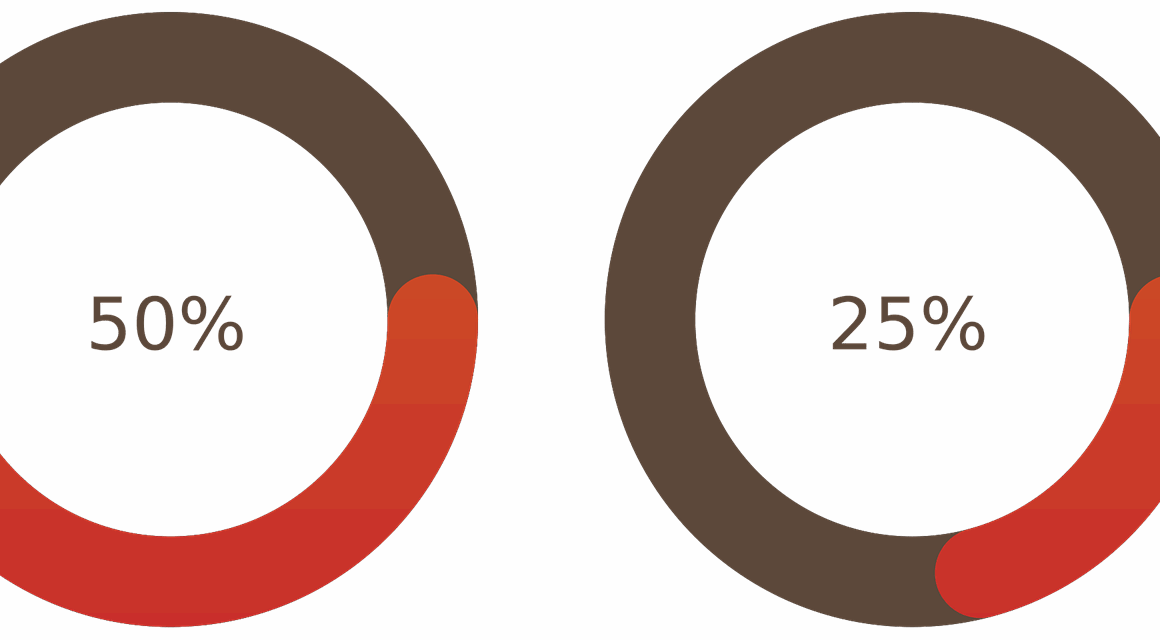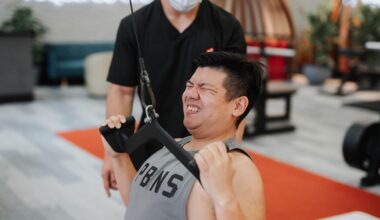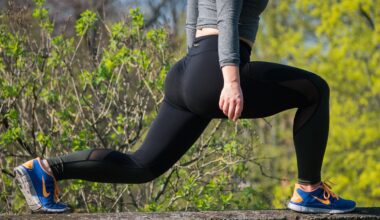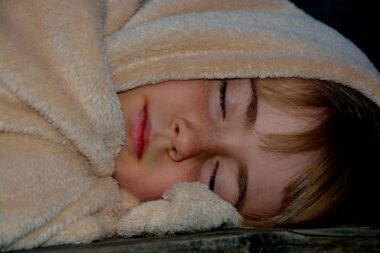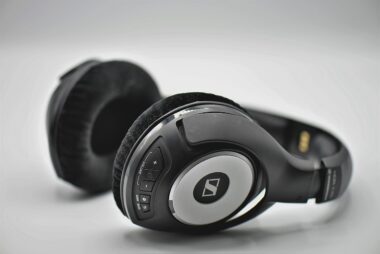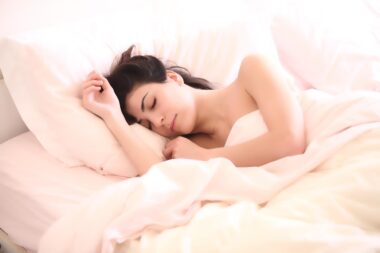Best Mobile Apps for Tracking and Improving Your Sleep Patterns
In today’s fast-paced world, achieving quality sleep is essential for overall health. Various mobile applications have emerged to support users in tracking and enhancing their sleep patterns. Through innovative technology, these apps assist in monitoring sleep cycles, duration, and overall sleep quality. They provide valuable insights, helping users recognize patterns and adopt healthier sleep habits. By leveraging features such as sleep sounds, alarms, and educational resources, these applications empower individuals to make informed decisions about their sleep hygiene. Understanding the importance of quality rest is vital, especially given the consequences of sleep deprivation. Poor sleep can lead to decreased productivity, poorer mental health, and a weakened immune system. Therefore, utilizing a mobile app that provides detailed data about your nightly rest can be a game-changer. These applications not only track sleep but also offer personalized advice to improve your sleep environment. They often integrate seamlessly with wearable devices, further enhancing the monitoring process. With numerous options available, it can be challenging to choose an app that suits your specific needs and preferences. Here are some of the best apps to consider.
Top Sleep Tracking Apps
First on the list is Sleep Cycle, a popular choice among users for its intelligent alarm feature. This app analyzes sleep patterns and determines the optimal wake-up time within a specified window. Users report feeling more refreshed and alert after using this feature. Another standout app is Calm, which focuses on relaxation techniques and soundscapes to help improve sleep. It includes a variety of sleep stories, soothing music, and guided meditations. Pillow is another excellent option that offers sleep tracking combined with an easy-to-navigate interface. This app provides comprehensive analysis, including sleep quality ratings and heart rate monitoring. Sleep as Android, a unique app, integrates with smart home devices and wearable tech, making it a versatile choice for tech-savvy users. It features sleep talk recording and can even wake you during light sleep phases for a more natural awakening experience. Each of these apps has unique features tailored for diverse user preferences, all aiming to enhance sleep quality and overall well-being.
Another noteworthy mention is Headspace, renowned for its meditation and mindfulness resources. This app provides a selection of sleep meditations designed to reduce anxiety and promote relaxation, thus preparing the mind for restful sleep. Users can select from guided techniques suitable for both novices and those experienced in meditation. Tailored sessions enable users to address specific issues that affect sleep. Additionally, Sleepio employs a cognitive behavioral therapy approach to improve sleep. It offers personalized programs that adapt to individual habits, target sleep anxiety, and teach techniques to enhance sleep resilience. Furthermore, Insight Timer offers a vast library of meditations, soothing sounds, and sleep tracks suitable for various preferences and needs. These apps underscore the connection between mental well-being and quality sleep. Engaging with calming activities before bedtime can naturally lead to improved sleep patterns. Also, many of these apps permit tracking of progress through sleep diaries, allowing users to view their sleep improvements over time. Monitoring changes can motivate individuals to persist in their commitment to better sleep solutions.
Integrating Wearable Technology
As technology advances, wearable devices have become instrumental in sleep tracking. Devices such as smartwatches and fitness trackers provide precise data on sleep stages and patterns. Many users benefit from wearing these devices, as they collect extensive data while sleeping. Syncing the data with apps like Fitbit or Garmin Connect allows for seamless integration and comprehensive analysis. These platforms often provide insights into daily activity levels, suggesting the balance between exercise and rest for improved health. It is becoming increasingly clear that a well-rounded approach to health combines both physical activity and sleep. Additionally, some wearables utilize innovative technology to monitor heart rate and blood oxygen levels during sleep, offering an in-depth understanding of overall health. Such data can alert users to potential sleep issues or health concerns requiring professional attention. By considering both sleep and activity data together, individuals can better understand their body’s needs. Combining dedicated apps with wearable technology forms a holistic approach to achieving restful sleep and improved recovery throughout the day.
Moreover, many sleep apps incorporate sound features that promote relaxation and aid sleep onset. For instance, users can choose from a variety of ambient sounds, such as rain, ocean waves, or a gentle breeze. Combining these sounds can create a personalized auditory environment conducive to sleep. Utilizing these soundscapes has been shown to enhance sleep quality significantly for many individuals. The ability to set timers and customize sound volumes allows users to tailor the experience to their liking. Beyond sound features, breathing exercises have gained traction, with some apps guiding users through techniques designed to decrease heart rates and prepare the body for sleep. Even short daily practices can build resilience to stress and help foster a calming bedtime routine. This aligns with findings that consistent sleep hygiene practices can dramatically impact one’s ability to fall asleep and stay asleep. By using technology, individuals can create an environment that is tailored to their personal needs, maximizing the chances for restorative and rejuvenating sleep. Addressing sleep quality with tech aids has become a more accessible and appealing option than ever.
Conclusion: Harnessing Technology for Better Sleep
In conclusion, utilizing mobile applications and wearable devices can significantly improve sleep patterns and overall health. These technologies offer a plethora of features that cater to individual needs, including sleep tracking, soundscapes, meditation, and personalized advice. The selection of the right app can empower individuals to take control of their sleep hygiene, identify detrimental habits, and make positive changes. The combination of monitoring technologies with relaxation features creates a well-rounded approach to achieving optimal sleep quality. Consistent usage facilitates the reinforcement of beneficial habits and promotes a sense of accountability to improve sleep health. As individuals integrate these tools into their nightly routines, the potential for better sleep emerges, allowing for greater physical and mental well-being. Prioritizing sleep and recovery should be at the forefront of health strategies for people of all ages. By investing time in exploring suitable technologies, a deeper understanding of personal sleep patterns can evolve. This, in turn, contributes to a healthier lifestyle overall and creates a pathway to better rest, fortifying the mind and body for life’s daily challenges.
Ultimately, as research continues to underscore the profound impact of sleep on health and performance, these tools remain invaluable in a modern context. Leveraging technology in smart, mindful ways can produce remarkable results. From better sleep quality to increased productivity, addressing sleep challenges with the right apps can lead to transformative outcomes. Individuals interested in enhancing their sleep experience should consider experimenting with several different options available in the market. The key is to identify applications or wearable technology that resonate personally and to integrate them into daily routines. Furthermore, ongoing reflection upon the data provided by these tools can guide meaningful changes over time. The journey towards improved sleep doesn’t need to be overly complicated; it can be supported through accessible and user-friendly technologies at our fingertips. Mobilizing these resources enables anyone to uncover their optimal sleep patterns and establish an environment that promotes relaxation and recuperation. By embracing these innovative tools, you harness the power of technology, paving the way toward a healthier sleep routine.
Finally, Personalization is Key
Finally, finding the best mobile app to track and improve sleep patterns depends not only on individual needs but also personal preferences. Different features resonate with different users, from those focused on data-driven metrics to those seeking comforting audio experiences. The integration of sleep tracking with mindfulness practices appeals to a wide array of users. Experimenting with various applications can help identify which functionalities align best with an individual’s lifestyle. In combining habits, preferences, and technology, people can effectively pave the way for improved sleep quality and recovery. Furthermore, many of these applications provide community support and resources that encourage users to engage further with their health journey. Engaging with others and sharing experiences can enhance motivation and commitment to improved sleep practices. Sleep is a vital component of a healthy lifestyle, and technology presents a valuable opportunity to reach sleep goals. Ultimately, a proactive approach to exploring these innovative tools can yield significant benefits. As we prioritize restorative sleep, we ensure optimal functioning in our daily lives. The journey to better sleep starts today with the right technological support and commitment towards change.
